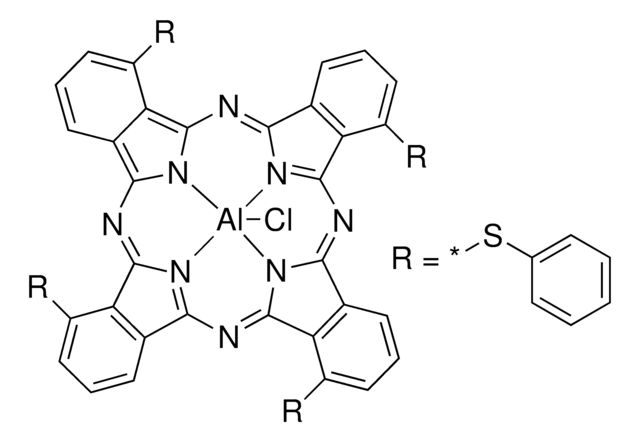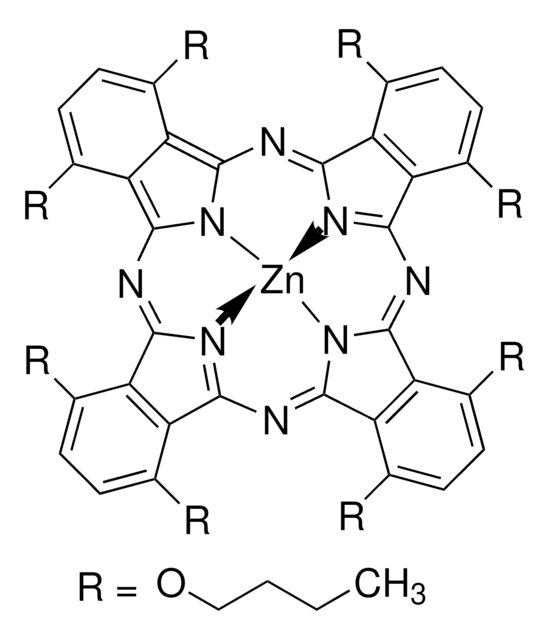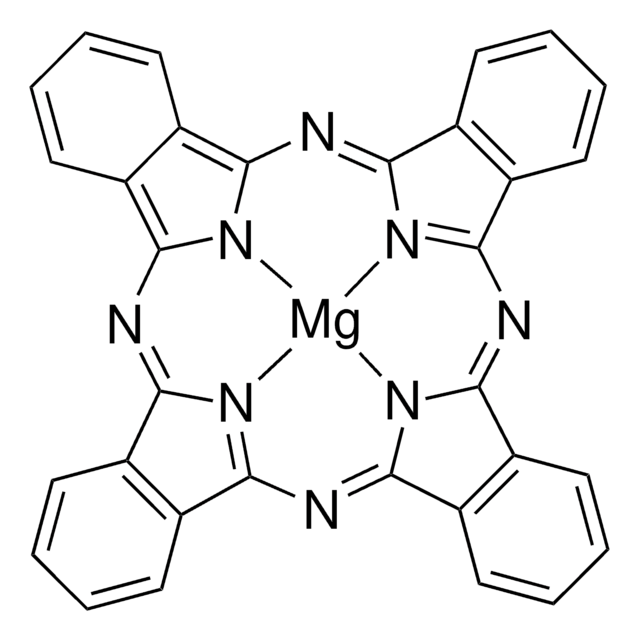362530
Aluminum phthalocyanine chloride
Dye content ~85 %
Sinónimos:
Chloro(29H,31H-phthalocyaninato)aluminum
About This Item
Productos recomendados
composition
Dye content, ~85%
mp
>300 °C (lit.)
λmax
680 nm
SMILES string
Cl[Al]1n2c3nc4nc(nc5n1c(nc6nc(nc2c7ccccc37)c8ccccc68)c9ccccc59)c%10ccccc4%10
InChI
1S/C32H16N8.Al.ClH/c1-2-10-18-17(9-1)25-33-26(18)38-28-21-13-5-6-14-22(21)30(35-28)40-32-24-16-8-7-15-23(24)31(36-32)39-29-20-12-4-3-11-19(20)27(34-29)37-25;;/h1-16H;;1H/q-2;+3;/p-1
InChI key
LBGCRGLFTKVXDZ-UHFFFAOYSA-M
¿Está buscando productos similares? Visita Guía de comparación de productos
Storage Class
11 - Combustible Solids
wgk_germany
WGK 3
flash_point_f
Not applicable
flash_point_c
Not applicable
ppe
Eyeshields, Gloves, type N95 (US)
Elija entre una de las versiones más recientes:
¿Ya tiene este producto?
Encuentre la documentación para los productos que ha comprado recientemente en la Biblioteca de documentos.
Los clientes también vieron
Nuestro equipo de científicos tiene experiencia en todas las áreas de investigación: Ciencias de la vida, Ciencia de los materiales, Síntesis química, Cromatografía, Analítica y muchas otras.
Póngase en contacto con el Servicio técnico











